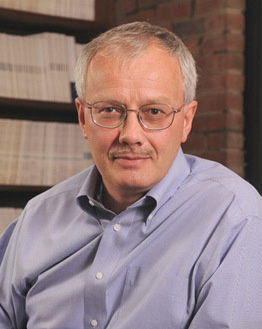 loading
loading
Light & VerityBiologist to head Yale's environment school Office of Public AffairsSir Peter Crane was knighted for his work in plant conservation. View full imageIf you want to know the focus of the outgoing dean of the School of Forestry & Environmental Studies (F&ES), just read the title of his latest book: The Bridge at the Edge of the World: Capitalism, the Environment, and Crossing from Crisis to Sustainability. The most recent book by the incoming dean -- Sir Peter Crane, whose appointment was announced in March -- suggests a different focus: The Origin of Modern Terrestrial Ecosystems: Fossils, Phylogeny, and Biogeography. By choosing an evolutionary biologist to succeed James Gustave "Gus" Speth ’64, ’69LLB, an outspoken expert in law and policy, is F&ES shifting its emphasis from advocacy toward science? Not at all, says Crane, a professor at the University of Chicago and former director of the Royal Botanic Gardens in Kew, England. "I'm a firm believer in speaking out on issues. So I would be sad if there was any diminution in the school's profile," he says. "The issue is how to get the balance right between the science and the more activist side of the environmental agenda. We need to do both, and we need to do both very well." Speth, a founder of the Natural Resources Defense Council and a former United Nations development official, helped draw attention to the school. His decade as dean brought significant growth in F&ES's faculty, course offerings, number of international students, and fund-raising. He has also served as a leader in Yale's institutional greening -- prodding President Richard Levin to reduce the university's greenhouse gas emissions, for example, and overseeing the creation of the school's new headquarters, Kroon Hall, a showpiece of green design that opened this spring. After retiring from Yale, Speth will join the faculty of the Vermont Law School. Crane has a lower political profile, although he was knighted in 2004 for his service to plant conservation. Like Speth, he brings an urgency about climate change and other pressing environmental issues. An expert in biodiversity, he helped establish the Millennium Seed Bank, a vault in Great Britain in which scientists are preserving seeds of wild plants threatened with extinction. Crane says it's too early to know just what the school's role will be in the next few years, but that the school's interdisciplinary faculty will find its way. "We can't do it all; we're going to have to pick our spots," he declares. "We're going to have to think carefully about the kind of training we want to provide. And we need to do that together."
The comment period has expired.
|
|